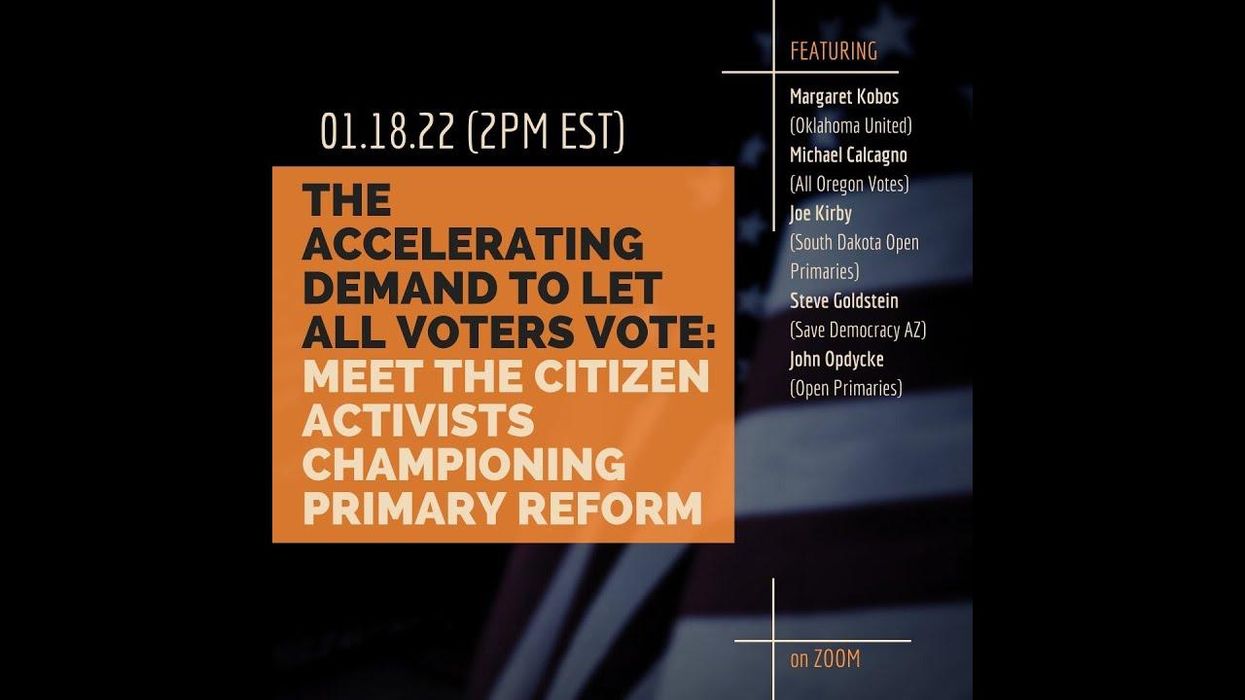After a major year of progress, where we saw Maine adopt open primaries and Nevada vote to enact nonpartisan open primaries, over a dozen states are birthing local movements grounded in reforming the primaries. Several will likely be on the ballot in 2024.
The strength of this explosion in activity is that it is organic, decentralized, and powered by very different types of Americans with diverse politics, concerns, and solutions. The discussion features Margaret Kobos (Oklahoma United for Progress), Michael Calcagno (All Oregon Votes), Joe Kirby (South Dakota Open Primaries) and Steve Goldstein (Save Democracy AZ). Open Primaries President John Opdycke hosted the discussion.




















